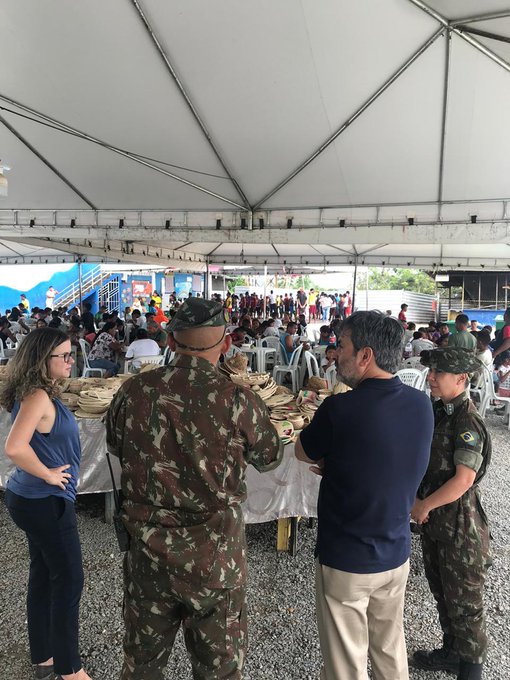One year after the international seminar on “human mobility in Latin America” held in Madrid, the Programme has 14 work axes in place to support public policies for the migrant population.

Human mobility is evident in prominent positions on world political agendas. In the Latin American region, issues such as access to the rights of migrants or the institutionalisation of migration policies are a public policy objective. Increasingly, migratory movements in Latin America and the Caribbean are particularly significant. Mixed flows, displacement of unaccompanied minors, groups of migrants in Central America, the Venezuelan migration crisis or the situation in Haiti are clear signs of the need to adopt measures to reinforce migratory governance in the region.
Based on this scenario, the EUROsociAL+ Programme seeks to respond to the demands that cannot be postponed in the region through a solid strategy of action within the framework of mobility governance and its impact on social cohesion in Latin America.
From areas of Democratic Governance in the FIIAPP and Social Policies in IILA, work axes (one bi-national, ten national and three regional) are developed with the theme of migration as a cornerstone. The Gender Equality area at Expertise France coordinates the mainstreaming of this gender approach in such actions.
At the regional level: i) the installation of an integrated system for the standardisation of migrants’ labour certifications, with the Pacific Alliance and Valora Chile, in Chile, Colombia, Mexico and Peru; ii) the strengthening of the Network of Prosecutors against Corruption with the Ibero-American Association of Public Ministries (AIAMP), and; iii) the creation of a network and model of legal assistance to migrants within the framework of the Inter-American Association of Public Defenders (AIDEF).
At the national level: i) support the development of a Bi-national Strategy for Mexico-Guatemala Border Territorial Development, with the Secretariat of Agrarian, Territorial and Urban Development (SEDATU), Mexico, and the General Secretariat of Planning (SEGEPLAN), Guatemala; ii) the route of integral protection of the rights of children and adolescents in migration situations, with the National System of Integral Protection of Children and Adolescents (SIPINNA), Mexico; iii) the Northern Border of Mexico programme, with the Ministry of Agrarian, Territorial and Urban Development (SEDATU), Mexico; iv) the protocol for the protection of refugee and stateless children and adolescents, and in other conditions, with the National Secretariat for the Rights of Children and Adolescents in Brazil; v) the guide to improve access to justice for migrants, with the Supreme Court of Justice in Chile; vi) the development and implementation of a criminal defence model for migrants and foreigners, with the Public Criminal Ombudsman in Chile; vii) inter-cultural approach instruments for social programmes with migrant populations, with the Solidarity and Investment Fund in Chile; viii) the installation of labour competency certification programmes for the migrant population, with the National Training and Employment Service (SENCE), Chile; ix) the implementation of the Social and Human Development divisions of regional governments, with the Sub-secretariat of Regional and Administrative Development (Subdere), Chile; x) the implementation of the local conflict management programme, with the Ministry of Justice and Human Rights in Chile, and; xi) the preparation of a comprehensive social policy for the SICA countries in Central America and the Dominican Republic.
Eleven months have passed since the holding in Madrid of the international seminar on “human mobility in Latin America. Challenges for social cohesion: towards a comprehensive and regional approach to migration”, with the attendance of institutions from 11 Latin American countries, the European Union and sub-regional and international organisations such as IOM, IDB, SEGIB, ECLAC and ILO, among others. Since then, EUROsociAL+ and its consortium institutions (EU, FIIAPP, Expertise France, IILA and SISCA-SICA), have formalised the demands of a migration agenda for Latin America in 14 actions, with the challenge of giving a joint response in the form of public policy to human mobility on the continent.



